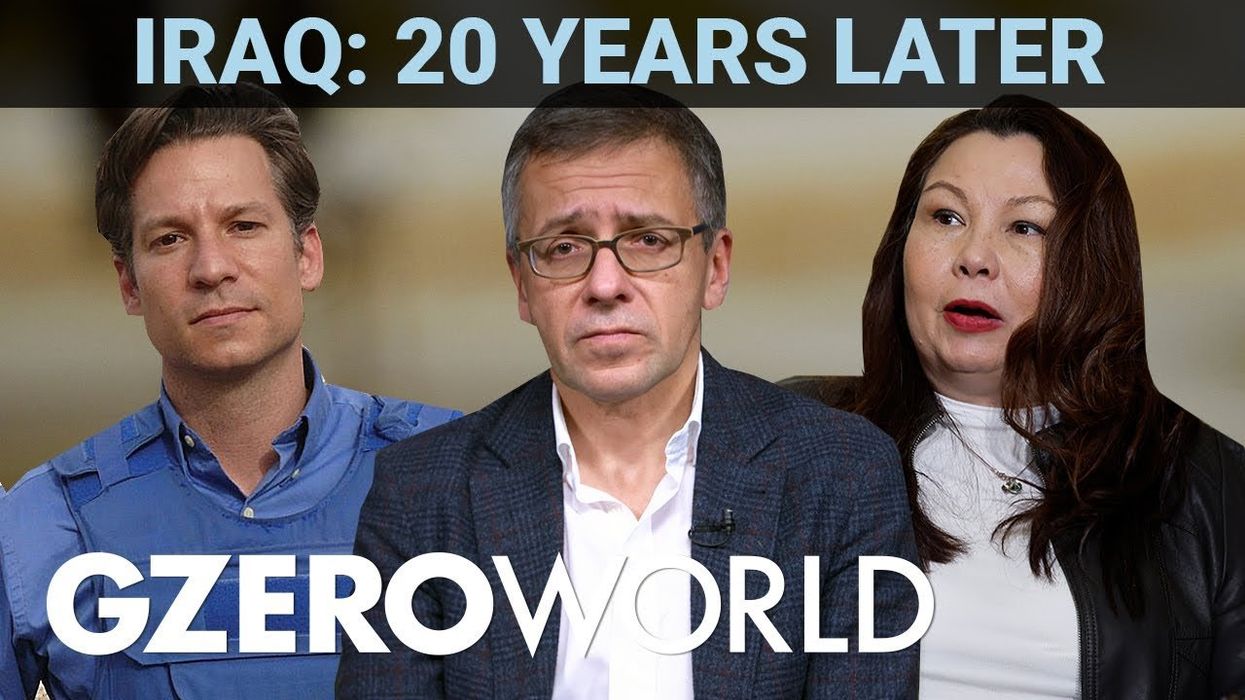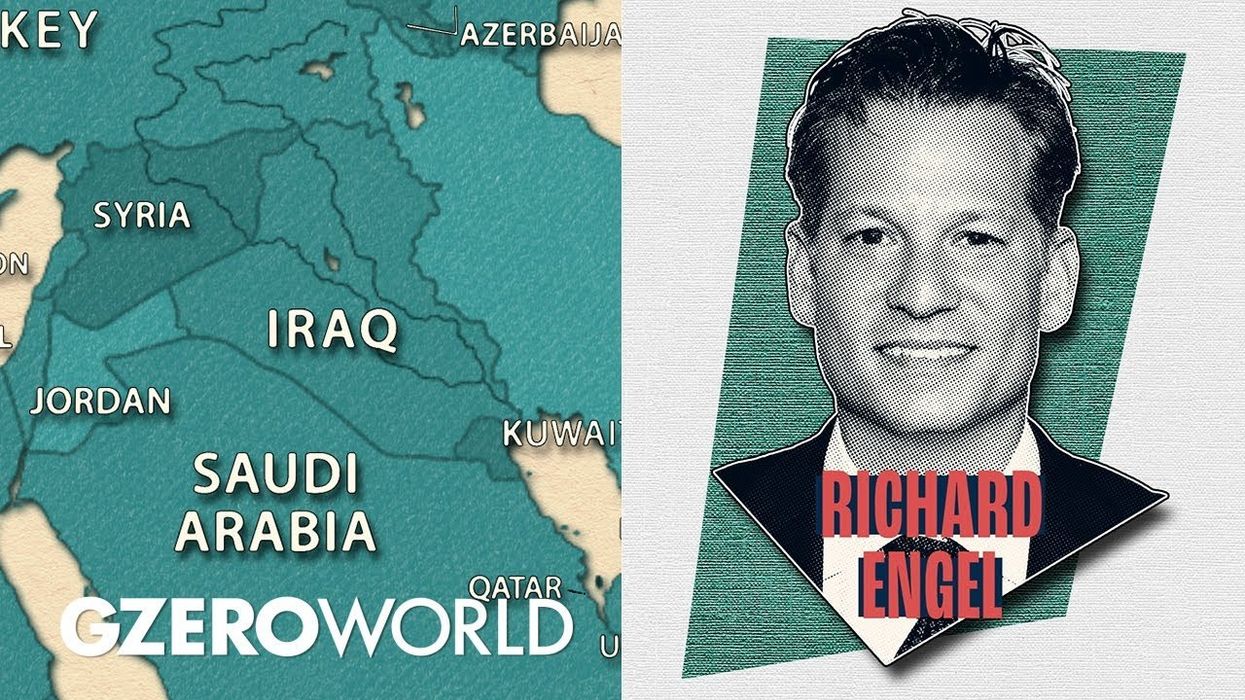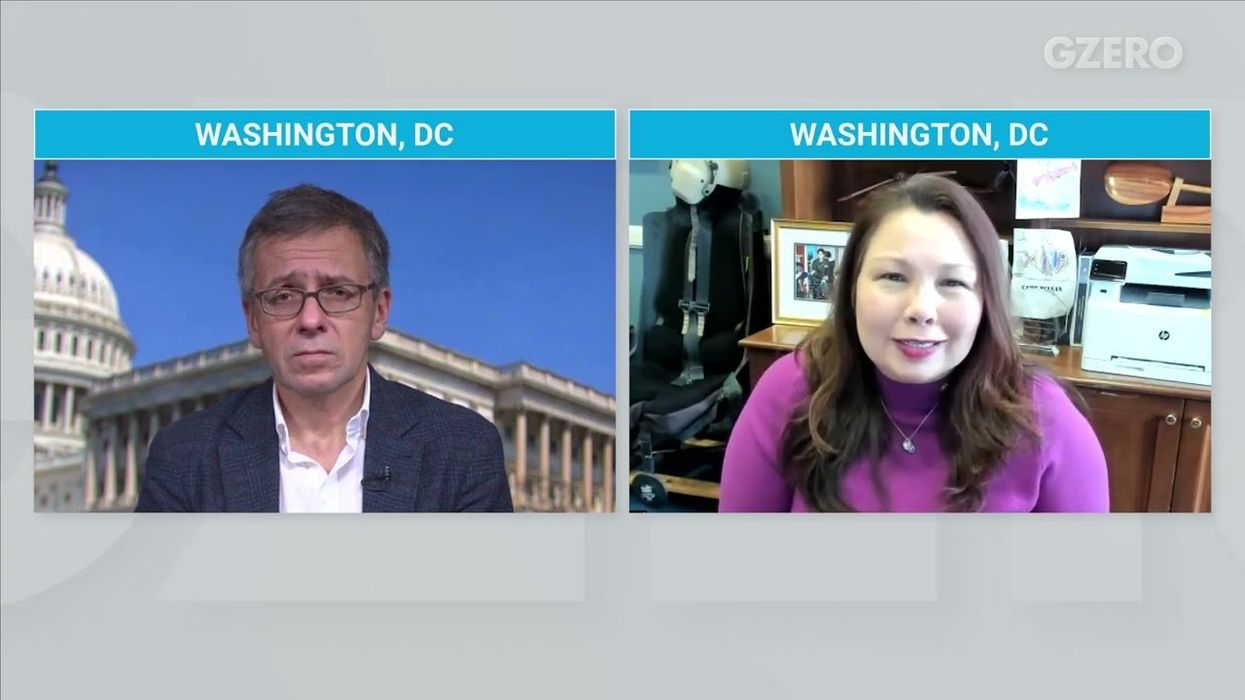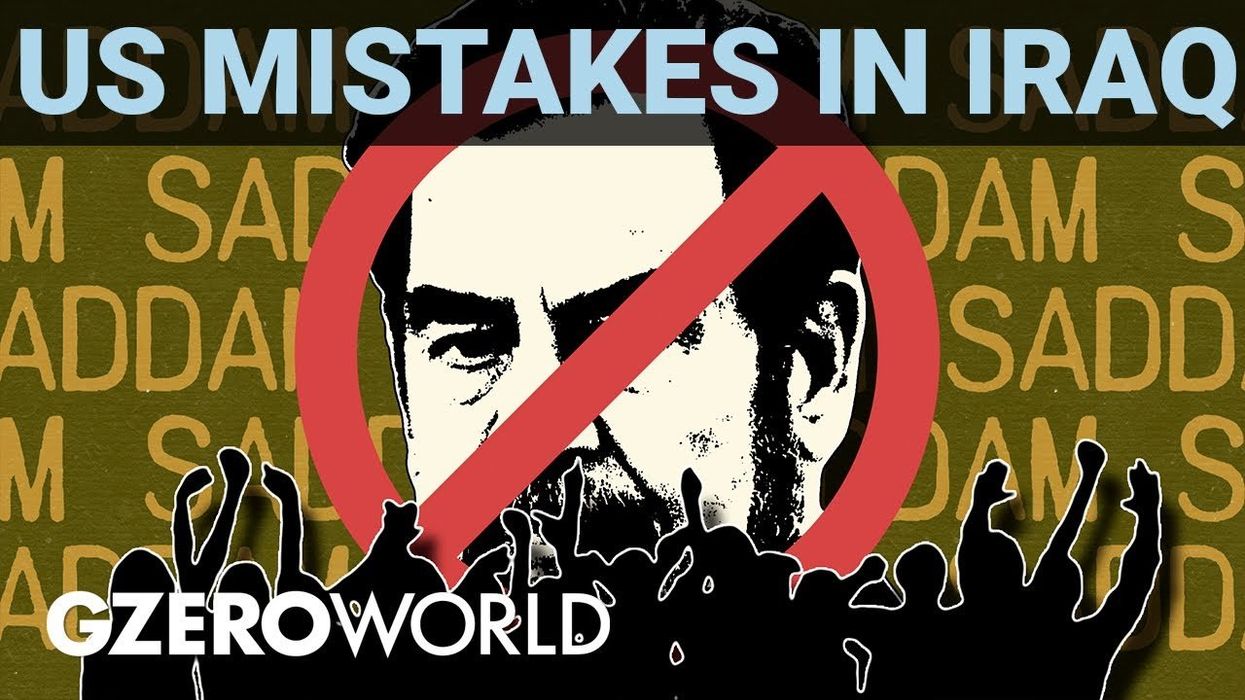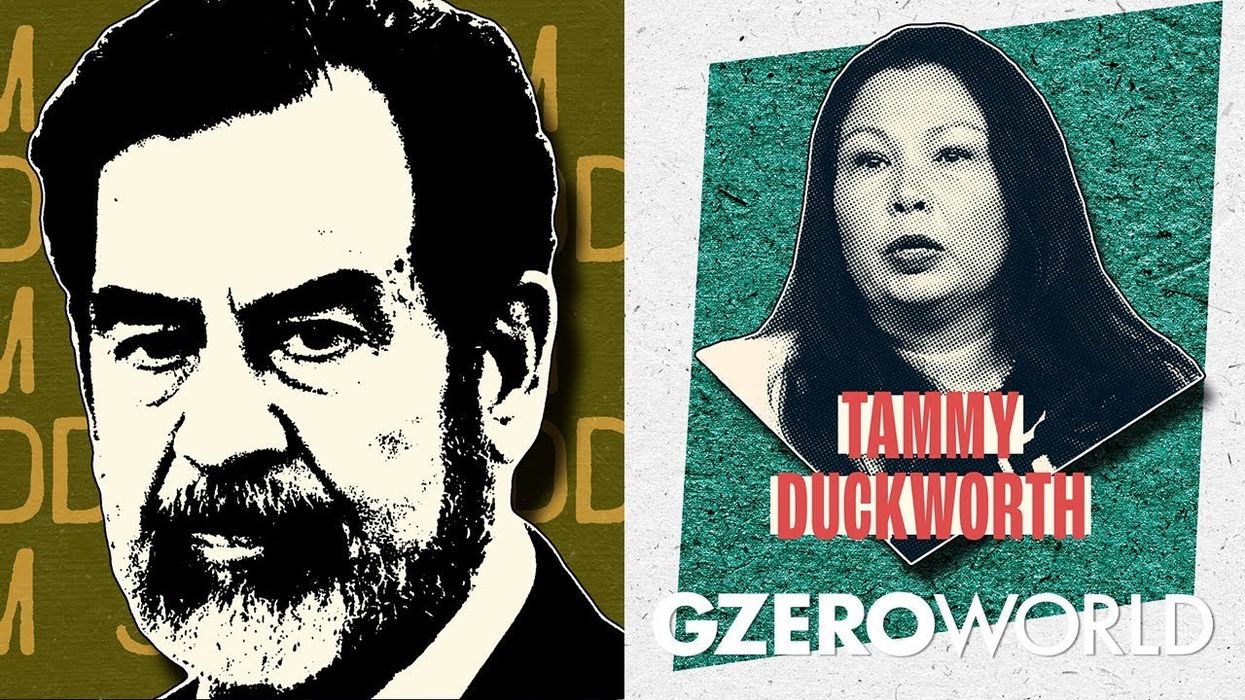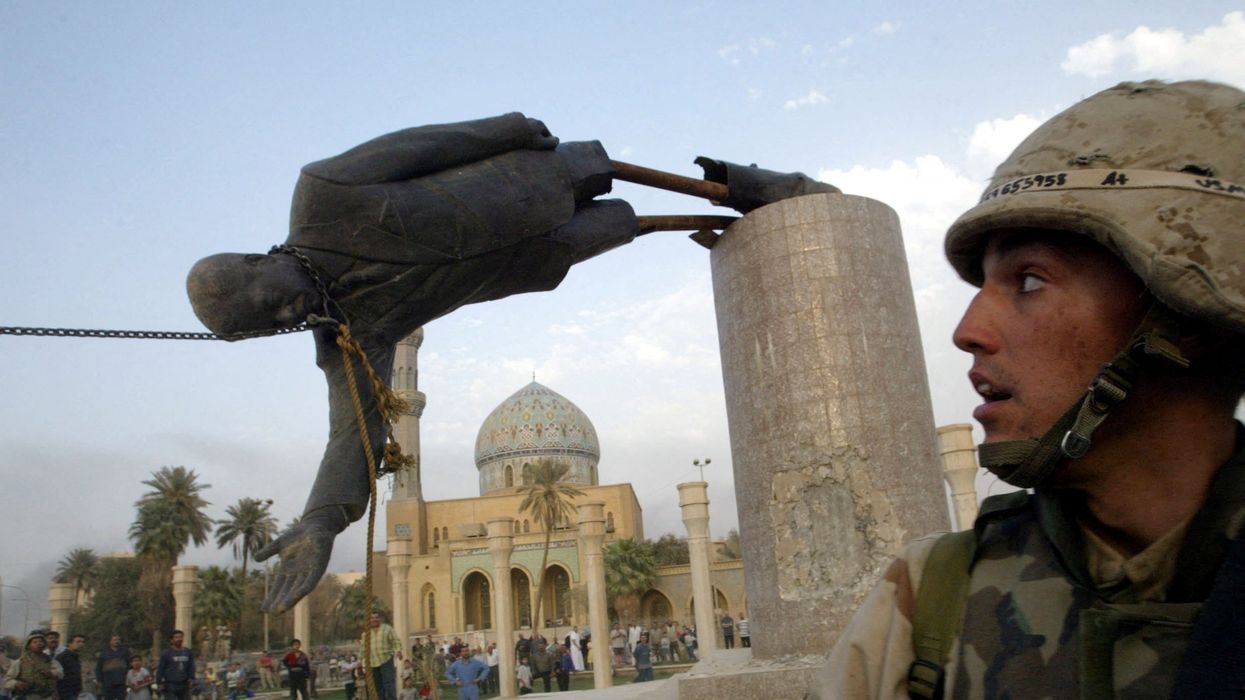GZERO World with Ian Bremmer
Iraq 20 Years Later
On 20th anniversary of the US-led invasion of Iraq, US Senator Tammy Duckworth and NBC's Chief Foreign Correspondent Richard Engel sit down with Ian Bremmer on GZERO World to reflect on the legacy of a war that reshaped the Middle East and continues to reverberate around the world.
Mar 20, 2023
